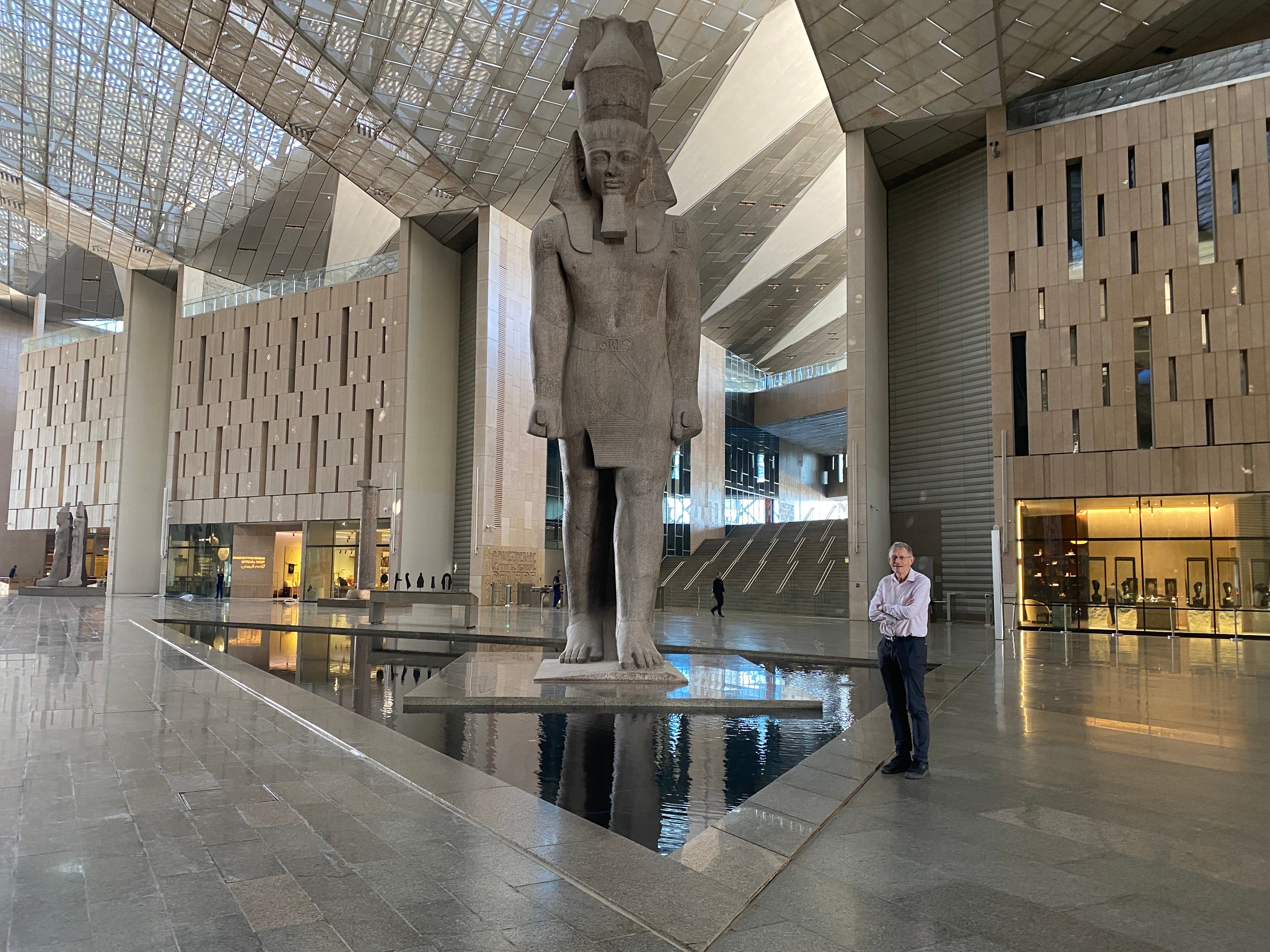Cairo’s Grand Egyptian Museum finally set to open this month – 11 years later than planned
Exclusive: Galleries could welcome visitors as early as Wednesday, though ‘King Tut’ collection will remain at the central Cairo location for now

Cairo’s Grand Egyptian Museum is finally expected to open to visitors this month – 11 years later than the original proposed date.
A dazzling new structure close to the Pyramids in Giza has been built to house many of the most prized antiquities on earth – charting Egypt’s millennia under the pharaohs.
The GEM, as it is known, is intended largely to replace the existing Egyptian Museum on Tahrir Square in central Cairo. But the billion-dollar project has been dogged by logistical, political and financial delays.
At present visitors can pay to visit the entrance atrium, which is dominated by a 3,200-year-old 36-foot statue of Ramses II. It is so vast that the building was constructed around it.
But access to the galleries housing thousands of antiquities has been barred. Philip Breckner, director of specialist tour operator Discover Egypt, told The Independent‘s travel podcast: “I’m hearing there will be a partial opening before the end of October.”
The Egyptian prime minister, Mostafa Madbouly, is understood to have given approval for many of the halls to open as early as Wednesday.
The main gallery consists of 12 halls classified by dynasty. The intention appears to be that halls will progressively open until the official opening early in 2025.
But the Tutankhamun collection will remain in the original Egyptian Museum for the moment.
A year ago a new airport – Sphinx International – opened east of Cairo. It allows easy access to Giza, the Pyramids and GEM without travelling through the Egyptian capital.
Upstream along the Nile, Mr Breckner said, many new tombs and sites have opened on the west bank near Luxor. “There’s extra access to the Valley of the Nobles and the Valley of the Workers – some of the areas that haven’t been fully open in the past.”
Britain’s biggest budget airline, easyJet, will start twice-weekly flights from London Gatwick to Luxor on 11 November.
Some prospective tourists have been staying away because of the increasing tension in the Middle East. But Mr Breckner said: “Egyptian life in the street, in the shops, the hotels, on the cruises is perfectly normal – and pretty oblivious to events outside and in neighbouring countries.
“Egypt is very much in need of tourism. Its main income, the Suez Canal, is very much affected at the moment.”
The latest Foreign Office travel advice says: “Terrorists are very likely to try to carry out attacks in Egypt.
“The authorities in Egypt have a significant security presence across the country, including armed security officers at important sites, critical infrastructure and road checkpoints. Extra measures are in place at tourist sites.”
Join our commenting forum
Join thought-provoking conversations, follow other Independent readers and see their replies
Comments
Bookmark popover
Removed from bookmarks